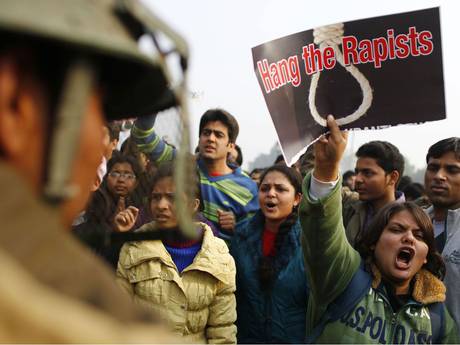
New Delhi, Jan 22: The horrific and brutal gangrape of a 23-year-old paramedical student inside a chartered bus in Delhi on December 16, 2012 by six men shook the national capital, forcing its citizens to come out on the streets in large numbers to demand justice and seek improvement in law and order. The CNN-IBN State Of The Nation Survey conducted after the barbaric incident reveals that India is seeking stronger laws and stricter punishment for heinous crimes like rape.
With crimes against women and incidents of rapes rising across the country, the Delhi gangrape was seen as a perfect example of how criminals were having an easy run with the police failing to protect the citizens of the country. As protests continued in Delhi the Delhi gangrape braveheart died on December 29 after battling for life for over 12 days.
As the political class found, the protesters were not only demanding justice for the Delhi braveheart but also better security for the women, especially in the national capital.
Their outrage is reflected in the State Of The Nation Survey in which an overwhelming majority have demanded exemplary punishment for those found guilty of rape. Several respondents also came up with options like stoning and flogging rapists in public while 100 per cent of those surveyed were in favour of increasing punishment for the rapists.
Almost 80 per cent of the respondents said yes when asked if the recent Delhi gangrape case will change the way in which crimes against women are dealt/handled in the future whereas 68 per cent answered in the affirmative to the question if crimes against women like rape will stop if the six accused in the recent Delhi gangrape case are given death penalty. Poor law and order and low rate of conviction in rape cases is because of police inefficiency and corruption coupled with the poor implementation of law and the slow process of criminal justice system.






Comments
Add new comment